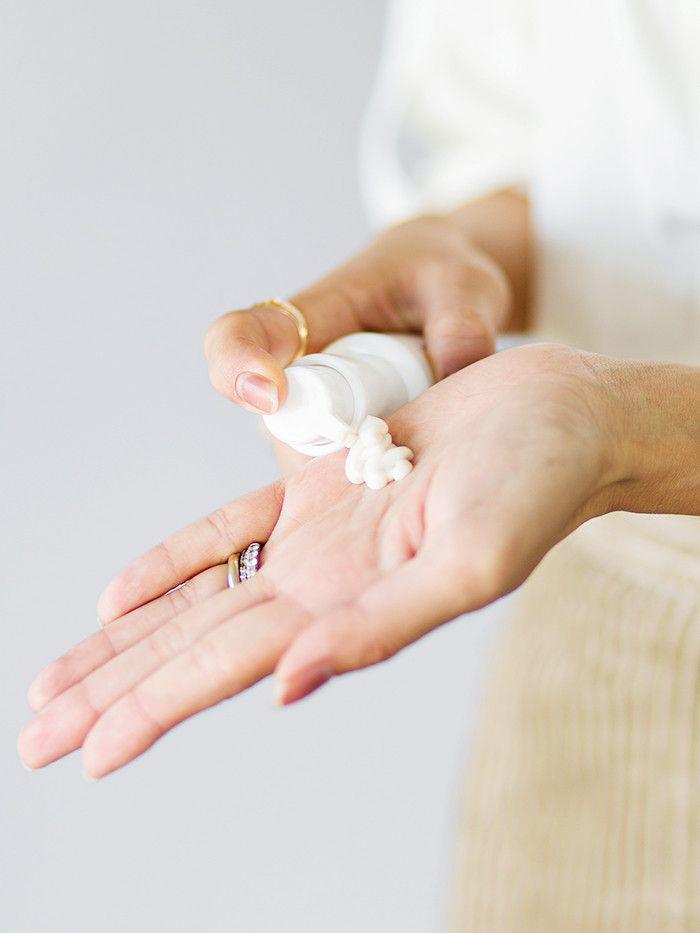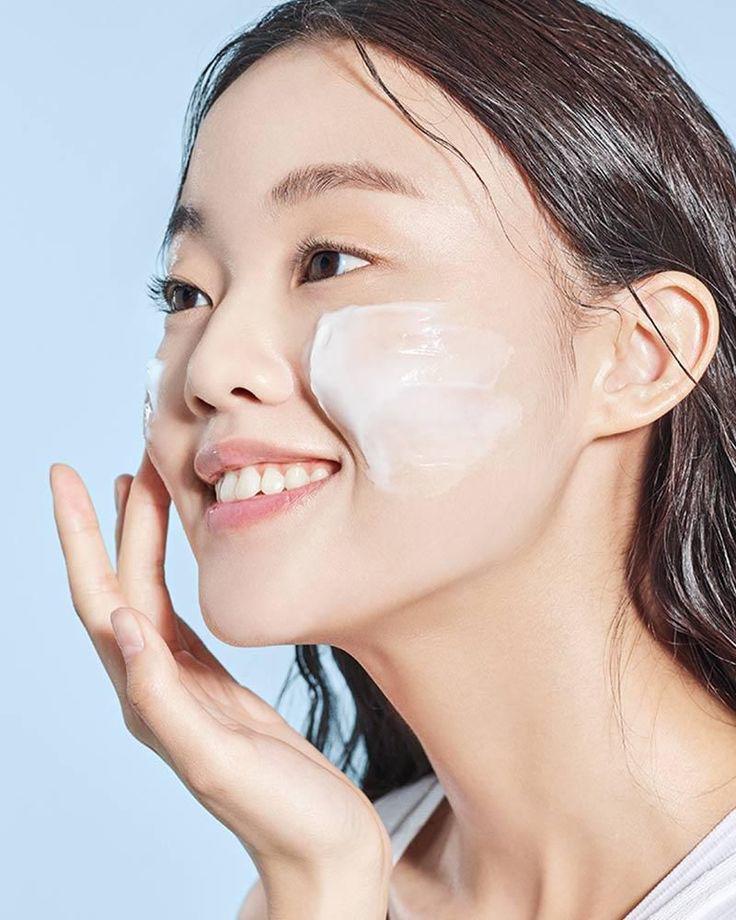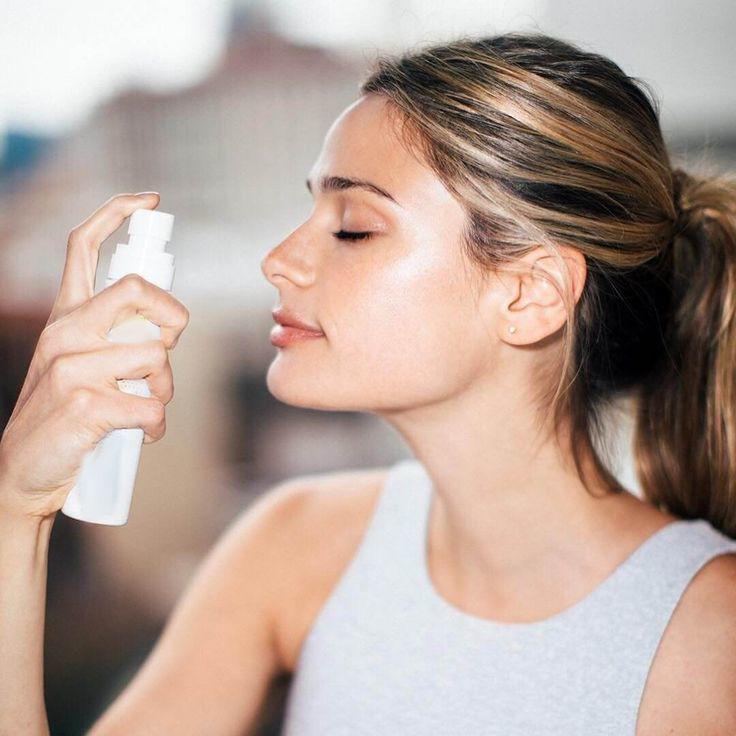With the scorching summer heat, sunscreen is the best defense against the sun’s harmful rays. There are various types of sunscreens available, such as lotions and sprays, but many people don’t know which one is right for their skin. However, choosing the right type of sunscreen is crucial for protecting and maintaining healthy skin. So, which is better, spray or lotion sunscreen? Read on as our experts reveal the key considerations in this article.
1. Types of Sunscreen
Sunscreens typically come in two forms: lotions and sprays.
Sunscreen lotions are usually semi-thick liquids packaged in tubes or soft bottles for easy dispensing. They are applied like other skincare lotions, spread evenly over the skin, and absorbed quickly.

Sunscreen lotion.
Sunscreen sprays are typically liquid-like and come in sturdy bottles with a spray nozzle. Using sunscreen sprays is convenient; simply spray a small amount onto each body area for one or two seconds and then rub it in.

Sunscreen spray.
Each type of sunscreen has its own pros and cons, so consider your personal needs when making a choice.
2. Advantages of Different Sunscreens
In reality, no sunscreen is perfect or terrible. Each product has its own set of advantages due to the manufacturer’s research and development. The decision between spray and lotion sunscreen depends on individual needs and skin type.
Advantages of Sunscreen Lotions
Sunscreen lotions are the traditional choice for many, and they come in two main types: chemical and physical sunscreens.
Physical sunscreens offer excellent protection and do not require frequent reapplication. Additionally, they tend to be gentle on the skin and rarely cause irritation. You can immediately go outside after applying a physical sunscreen without waiting for it to absorb.

Physical sunscreens are gentle and less likely to irritate the skin.
Chemical sunscreens have a lightweight formula, absorb quickly, and do not leave a white cast on the skin. They also tend to have higher SPF values than physical sunscreens.

Chemical sunscreens provide a natural finish without altering your skin tone.
Advantages of Sunscreen Sprays
The biggest advantage of sunscreen sprays is their convenience and ease of use. They are quick to apply and reapply, leaving a comfortable feeling on the skin. Sprays absorb well without clogging pores.

Sunscreen sprays provide comfort and do not clog pores.
3. Disadvantages of Different Sunscreens
Disadvantages of Sunscreen Lotions
Sunscreen lotions have a thick consistency, which can leave white streaks on the skin, and they take about 20-30 minutes to absorb. Some lotions with tone-up functions may alter the skin tone of those with naturally tanned skin. Additionally, sunscreen lotions can feel greasy and clog pores, leading to an uncomfortable, oily sensation. With various physical and chemical sunscreens on the market, choosing the right one for your skin can be challenging.

Sunscreen lotions can feel greasy and cause discomfort.
Disadvantages of Sunscreen Sprays
It can be challenging to determine the correct amount of sunscreen spray to use, leading to waste. Some sprays may be easily washed off and require multiple applications. Sunscreen sprays tend to be more expensive than other types, and the application process can result in the release of active ingredients into the environment.

Sunscreen sprays can be prone to waste and easily washed off.
4. Which is Better: Spray or Lotion Sunscreen?
Regardless of the type, always opt for sunscreens with an SPF of 30 or 50 to ensure maximum protection.
Experts recommend using sunscreen lotions on hot days with extended outdoor activities, reapplying them after four hours. Lotions provide better coverage and can even replace your makeup primer. For days spent mostly indoors, a spray sunscreen is sufficient, with reapplication after two hours.
For those with oily or acne-prone skin, dermatologists suggest using sunscreen sprays due to their lightweight formula, which includes moisturizing ingredients without causing oiliness or clogging pores. Spray sunscreens are also ideal for a cool, comfortable feeling during the summer.
On the other hand, individuals with dry, combination, or sensitive skin should opt for sunscreen lotions, as they are gentle, less likely to irritate the skin, and offer higher coverage.

Both spray and lotion sunscreens have their pros and cons, and the choice depends on various factors.
Regardless of the type of sunscreen you choose, always check the ingredients, accompanying data, and consult with dermatologists or skincare experts to avoid allergies. Remember, no sunscreen is perfect, so consider your current skin condition, needs, and budget when making a decision.
Is Slathering on Sunscreen Really as Good as We Think?
The sun’s rays can be harsh on our skin, and while we diligently apply sunscreen daily, many of us still experience skin concerns such as dark spots, freckles, and uneven skin tone. This has led to a common misconception that a thicker layer of sunscreen will provide better protection. However, this is not the case, and understanding the appropriate amount of sunscreen to apply remains a challenge for many.







































